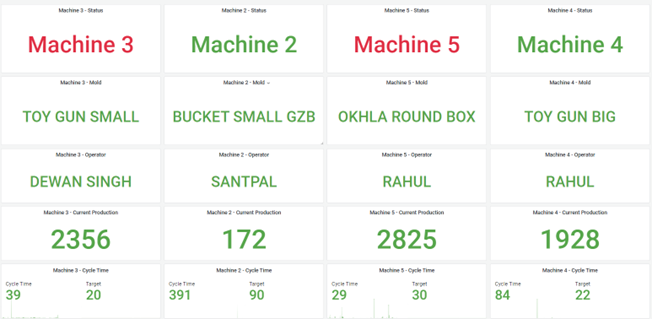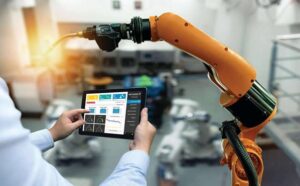Smart Manufacturing
Smart manufacturing has taken the manufacturing industry by storm. It presents a new way of thinking that can revolutionize the way in which goods are manufactured, using technology to streamline processes and make them more efficient. It involves using digital systems, data analysis, artificial intelligence, and other tools to improve the production process. The advantages of smart manufacturing include cost savings, optimization of resources, and streamlining production processes. Read on to learn more about the advantages of this innovative way of thinking.

Better Data Analysis
One of the biggest advantages of smart manufacturing is better data analysis. With the reduced need for manual tasks, there is a larger proportion of time available to analyse data. Smart sensors throughout the manufacturing process will be able to transmit data in real time, which will be collected, analysed, and stored digitally. This means that manufacturers will have much better insights into their operations, which will help them to optimize their processes.
Streamlined Processes
Another advantage of smart manufacturing is streamlined processes. Digitalization and automation create an ideal environment for streamlined production. Automation has been a key element of smart manufacturing since its inception, but now it’s more widely adopted and available than ever before. With more manufacturers adopting automation, there will be more demand for robotics and other automated machinery, which will drive prices down and make automation more accessible.
Resource Optimization
One of the biggest advantages of smart manufacturing is resource optimization. Because manufacturers will have a better understanding of their operations, they can make better decisions about when to use certain resources. For example, if a particular resource is likely to be in high demand at a certain time, manufacturers can plan to use alternative resources during that period. As manufacturing processes become more streamlined, there will be less tied-up resources, which means manufacturers have more freedom in when to use certain resources. This is also a result of better data analysis.
Improved Quality Control
Another advantage of smart manufacturing is improved quality control. With smarter sensors and a digital process, it will be easier to identify potential issues and fix them before they become major problems. With reduced human error, better quality control will lead to higher-quality products. Smart sensors are highly accurate, so they can detect problems such as faulty materials, incorrect temperatures, and more. They will also be able to store data related to quality control, making it easier to identify trends and root causes.
Real-time Alerts
Another advantage of smart manufacturing is real-time alerts. Because of the data that will be available, manufacturers will be able to receive alerts about potential issues before they turn into crises. This could be anything from a machine or process that is about to break down, to a supply chain issue that could stop a shipment from reaching customers on time. This will help to avoid unnecessary delays and keep production running smoothly.
Robotics and Automation
Another advantage of smart manufacturing is robotics and automation. As automation becomes more popular, it will be easier to implement robotics and bring automation to new industries. Robots are already taking over a lot of tasks in factories, and with improved technology, they will become more powerful and reliable. Automated systems will be able to communicate with other devices and sensors, and manufacturers will be able to control and program them with ease. This will make it easier to automate processes and remove the need for human input.
Smart Manufacturing Platforms
Smart manufacturing platforms are designed to help connect different systems and devices, including robots and sensors, to create a central hub. They are often implemented using Artificial Intelligence, which allows the systems to be autonomous, self-learning, and self-programming. These hubs will allow manufacturers to have greater control over their operations, enabling them to optimise production and increase profits. They will also help to reduce errors and improve quality control.
Conclusion
The advantages of smart manufacturing are better data analysis, streamlined processes, resource optimization, improved quality control, real-time alerts, robotics and automation, and smart manufacturing platforms. If you want your business to flourish in the future, you need to start thinking about adopting the latest technologies and investing in new equipment. The best way to do this is to partner with a manufacturer that is already embracing the latest technologies and is ready to help you with your digital transformation journey.





